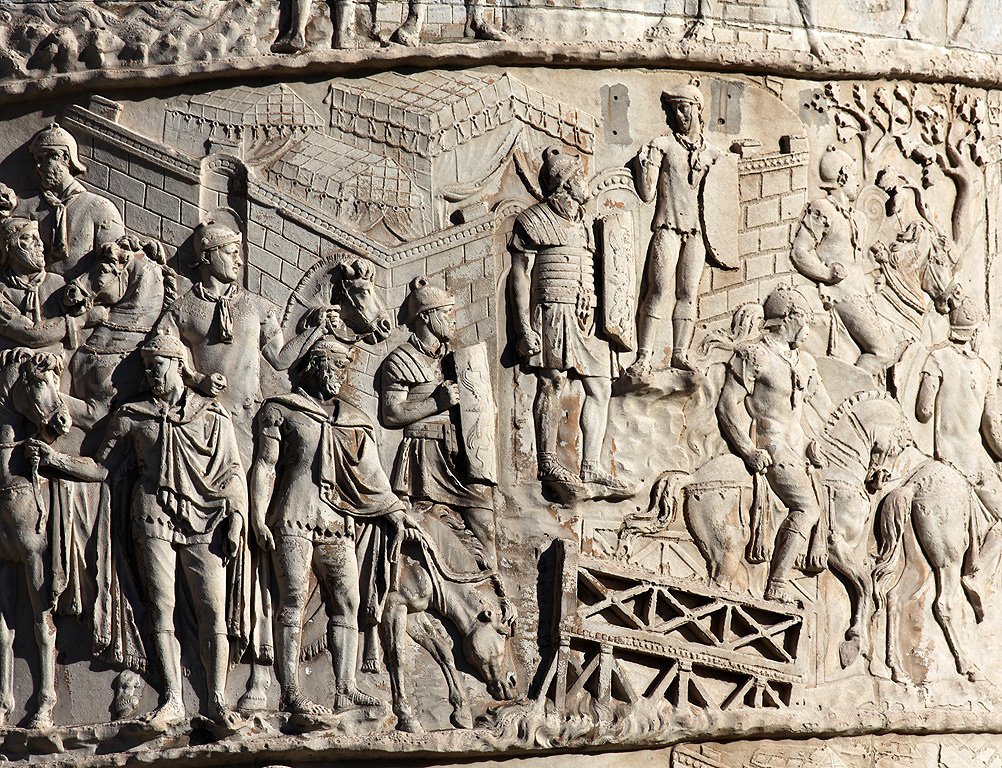I play video games. I study historiography. Today I am going to ramble to myself about how strategy games and “faction traits” are actually engaging with a very serious historical question discussed by both ancient and modern historians: “Was Republican Rome OP?”
A loooooong https://abs.twimg.com/emoji/v2/... draggable="false" alt="🧵" title="Thread" aria-label="Emoji: Thread">
https://abs.twimg.com/emoji/v2/... draggable="false" alt="🧵" title="Thread" aria-label="Emoji: Thread">
A loooooong
What are faction traits? They are positive and negative perks given to civilizations in strategy games that reflect their historical progression and provide the player different playstyles (economic, defensive, etc.) In the case of Rome, digital Romanization. Let’s look at some.
Age of Empires: Rise of Rome
Roman swordsmen attack faster, towers and buildings cost less. Emphasis is placed on both the excellence of their infantry and propagation of architecture. They expand by having good infantry, building quickly, then consolidating with defenses.
Roman swordsmen attack faster, towers and buildings cost less. Emphasis is placed on both the excellence of their infantry and propagation of architecture. They expand by having good infantry, building quickly, then consolidating with defenses.
Rise of Nations
Forts can be built cheaper and faster; they also expand your borders. Rome starts with one free military technology, giving them a martial advantage. She recruits heavy infantry faster and cheaper than other civilizations.
Forts can be built cheaper and faster; they also expand your borders. Rome starts with one free military technology, giving them a martial advantage. She recruits heavy infantry faster and cheaper than other civilizations.
Imperator: Rome
Starting as a Republic in 304 BC, Rome has the following traits: +5% manpower recovery, +0.10 integration recovery (for integrating vassals into your state), -5% morale of navies. A sketch is formed: land-based, populous, and expansionist.
Starting as a Republic in 304 BC, Rome has the following traits: +5% manpower recovery, +0.10 integration recovery (for integrating vassals into your state), -5% morale of navies. A sketch is formed: land-based, populous, and expansionist.
Rome: Total War II
The most complex one since there are three subcategories called “cultures.” Julii: +10% morale during battles against barbarian tribes and +4 to cultural conversion (meaning Roman culture is easier to spread.) These traits clearly reference Caesar in Gaul.
The most complex one since there are three subcategories called “cultures.” Julii: +10% morale during battles against barbarian tribes and +4 to cultural conversion (meaning Roman culture is easier to spread.) These traits clearly reference Caesar in Gaul.
The Junii get more wealth from agricultural buildings and get a public order bonus (less chance for riots in your cities) from the presence of Latin culture. Traits reference the austere beginnings of the Junii and emphasize the active spread of Roman culture.
The Cornelii are clearly meant to represent the patricians. They have a diplomatic bonus with Hellenic factions, get a 3% bonus to tax rates, and have “disdain for plebs” which gives you a penalty to public order from the presence of Latin culture. Silly philhellenes.
Many of these traits are tied to game mechanics/scale and my list is not meant to be absolute. Nevertheless, some greater trends can be teased out. Republican Rome is populous and militaristic. This is indicated by decreased recruitment costs and bonuses to manpower.
The emphasis on population is interesting and reflects the ongoing research on Italian manpower and demography. The most popular example of this is the tenacity exhibited by Rome when she continued to wage the Hannibalic War even after suffering crushing defeats like Cannae.
Demographic studies are vital for socio-economic histories since the composition of the population is not only tied to military manpower, but to societal changes and economic output. We see this most clearly in "grand strategy" games like Imperator:Rome and Rome: Total War II ...
where population not only affects your ability to recruit soldiers, but also your economic output since you derive income from taxes and industries built in your cities.
The seminal work (although now a bit dated) on demography continues to be Brunt& #39;s Italian Manpower [...]
The seminal work (although now a bit dated) on demography continues to be Brunt& #39;s Italian Manpower [...]
In these two games, the culture of the population is also stressed with bonuses given to forced integration via a variety of game mechanics. This is indicative of the problematic term "Romanization" and how we perceive conquered peoples employing Roman architecture and customs.
Can we really tell the identity of a person by the material they left behind? If they use Latin in inscriptions, is that indicative of the wider use of Latin among all the population? Identities can be fluid, but in terms of game mechanics, we still employ the narrative of ...
Romanization wherein cultures are slowly chipped away by the player to eventually make all their territory one uniform cultural group: Roman. Again, this is for game mechanics, but it is still interesting to think about how cultural dominance is incentivized for players.
This leads to probably the most "meme& #39;d" aspect of how we perceive the Romans for better or worse: their imperialistic tendencies and bellicosity. We have seen this in strategy games through their manpower, the incentives to spread Roman culture, troop quality, and buildings.
The emphasis on fortifications is especially interesting because it feeds into a defensive playstyle that mimics a particular narrative for Roman expansion: defensive imperialism. In a nutshell, this theory relies on a war-by-war reading wherein the Romans believe that their wars
were completely justified and any territory is gained reluctantly. It& #39;s reactive expansion. In effect, the empire was simply placed on the lap of the Romans.
Cicero: Our ancestors waged war [...] for the sake of our allies, in spite of not having suffered injury themselves.
Cicero: Our ancestors waged war [...] for the sake of our allies, in spite of not having suffered injury themselves.
The emphasis on fortifications is also indicative of how we perceive the Romans as "fort/camp-people." In a nutshell, we love talking about the structure and defenses of the Romans. This goes all the way back to Polybios when he describes the orderly Roman camp as a reflection...
of Roman society and institutions. They are almost Prussian-like and, at times, there is a confluence between their perception as anal-retentive engineers and how we satirize German militarism and neatness.
Here is an example from a little later. A relief from Trajan& #39;s Column.
Here is an example from a little later. A relief from Trajan& #39;s Column.
The Romans of the Late Republic however, sometimes struggled to explain their own Roman identity and their expansion across the Mediterranean.
Sallust says their ancestors were rough military men with little time for leisure and this is why they expanded and attained glory.
Sallust says their ancestors were rough military men with little time for leisure and this is why they expanded and attained glory.
There are a lot more, but I want to emphasize how the depiction of the Romans in video games matches ancient and modern discussions about the character of Rome and the Romans. Were they exemplary? Did they earn their empire? Was there an advantage they had over other peoples?
Was their culture so superior that they could convert subject peoples? Was their military that much more superior? Were they just naturally suited for war? Did their institutions or customs shape them to be this way? We continue to debate these questions today.
Why is this important? How we chose to depict ancient states drastically changes the narrative we supply for their growth, apex, and decline. It is one of the ways that we perceive of the human-made construct of states and polities by ascribing human qualities to them: traits.
In this instance, the traits given to Republican Rome in strategy games reflect the continuing discussion about how we frame the Roman state and how we contextualize her growing position within the Mediterranean. The player, like the historian, ultimately decides the narrative.

 Read on Twitter
Read on Twitter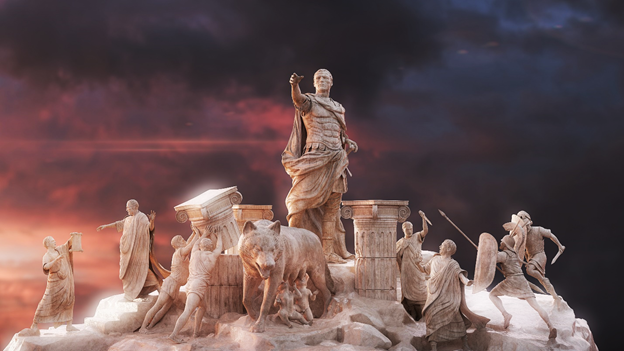 " title="I play video games. I study historiography. Today I am going to ramble to myself about how strategy games and “faction traits” are actually engaging with a very serious historical question discussed by both ancient and modern historians: “Was Republican Rome OP?” A loooooonghttps://abs.twimg.com/emoji/v2/... draggable="false" alt="🧵" title="Thread" aria-label="Emoji: Thread">" class="img-responsive" style="max-width:100%;"/>
" title="I play video games. I study historiography. Today I am going to ramble to myself about how strategy games and “faction traits” are actually engaging with a very serious historical question discussed by both ancient and modern historians: “Was Republican Rome OP?” A loooooonghttps://abs.twimg.com/emoji/v2/... draggable="false" alt="🧵" title="Thread" aria-label="Emoji: Thread">" class="img-responsive" style="max-width:100%;"/>
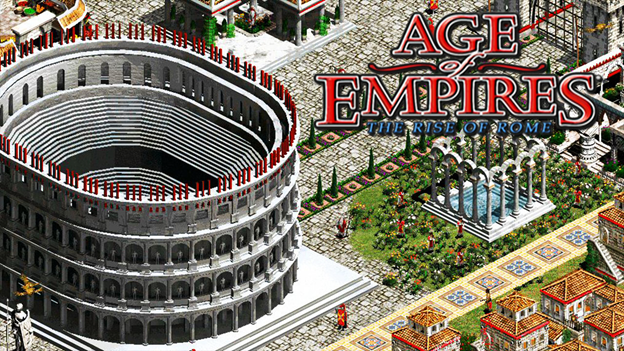
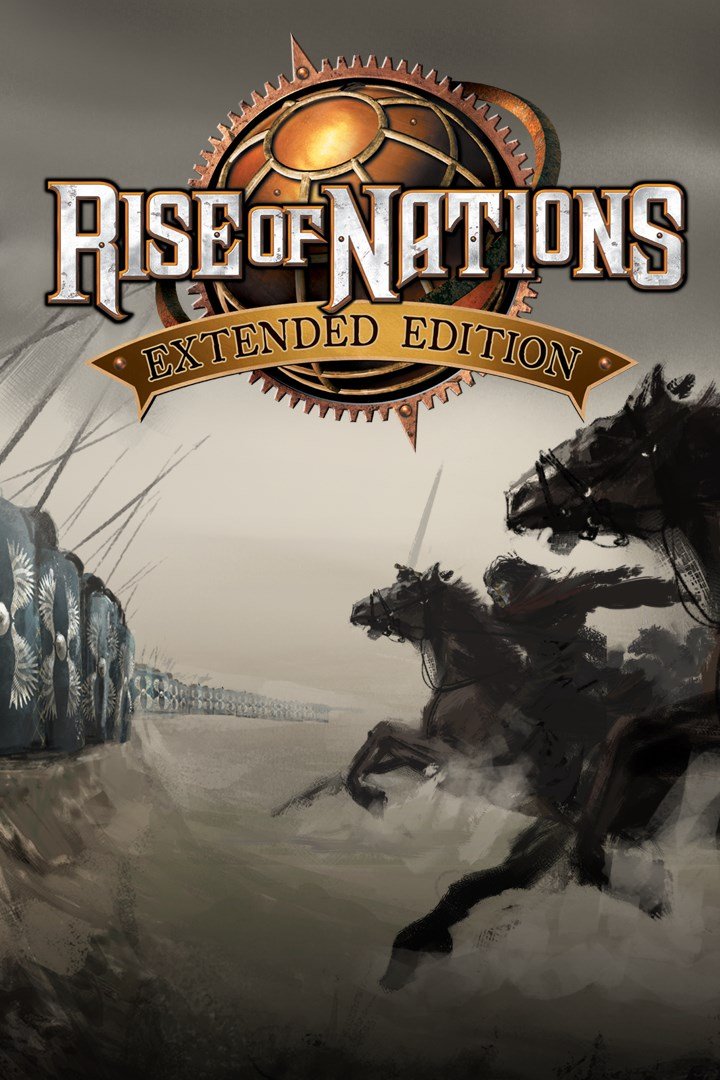
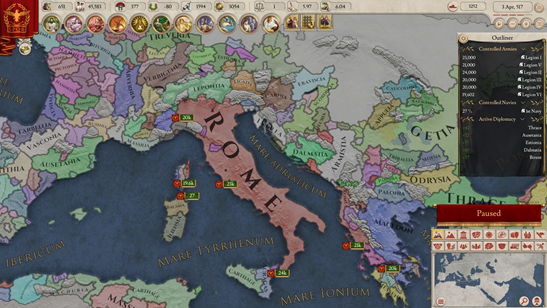
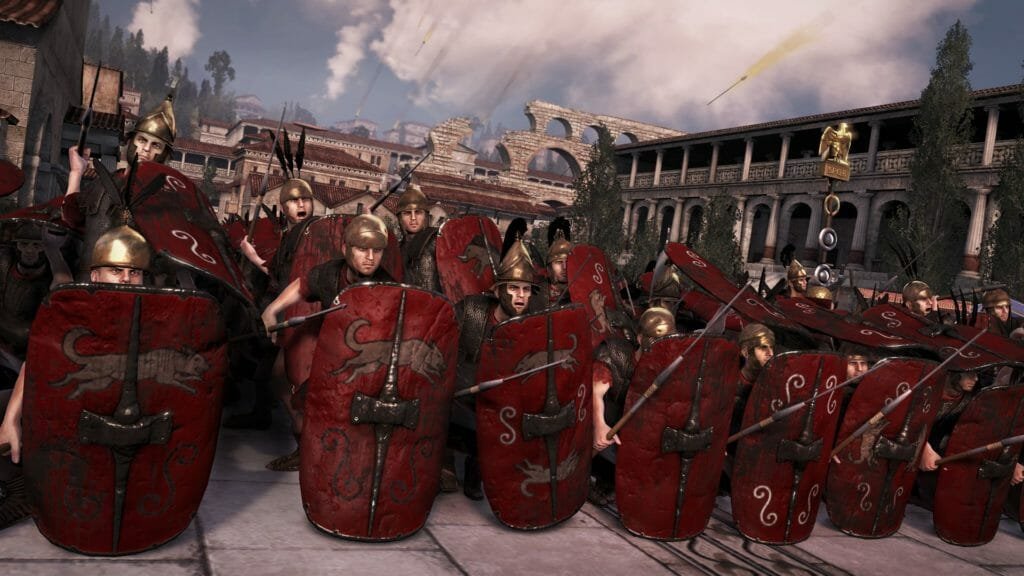
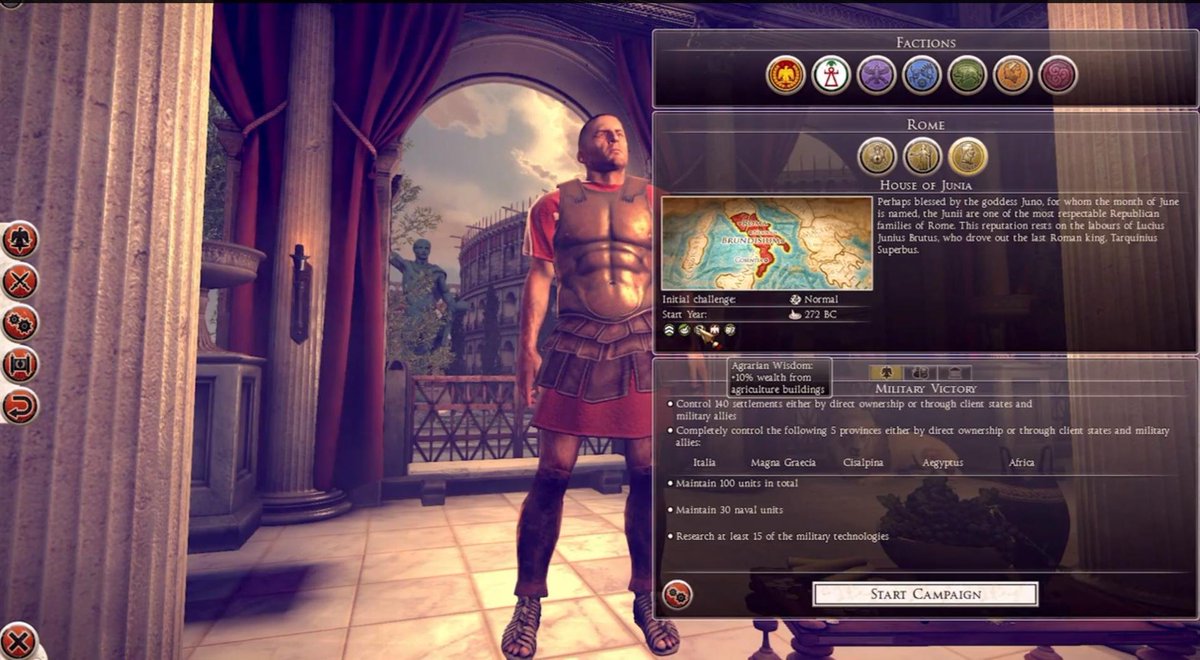
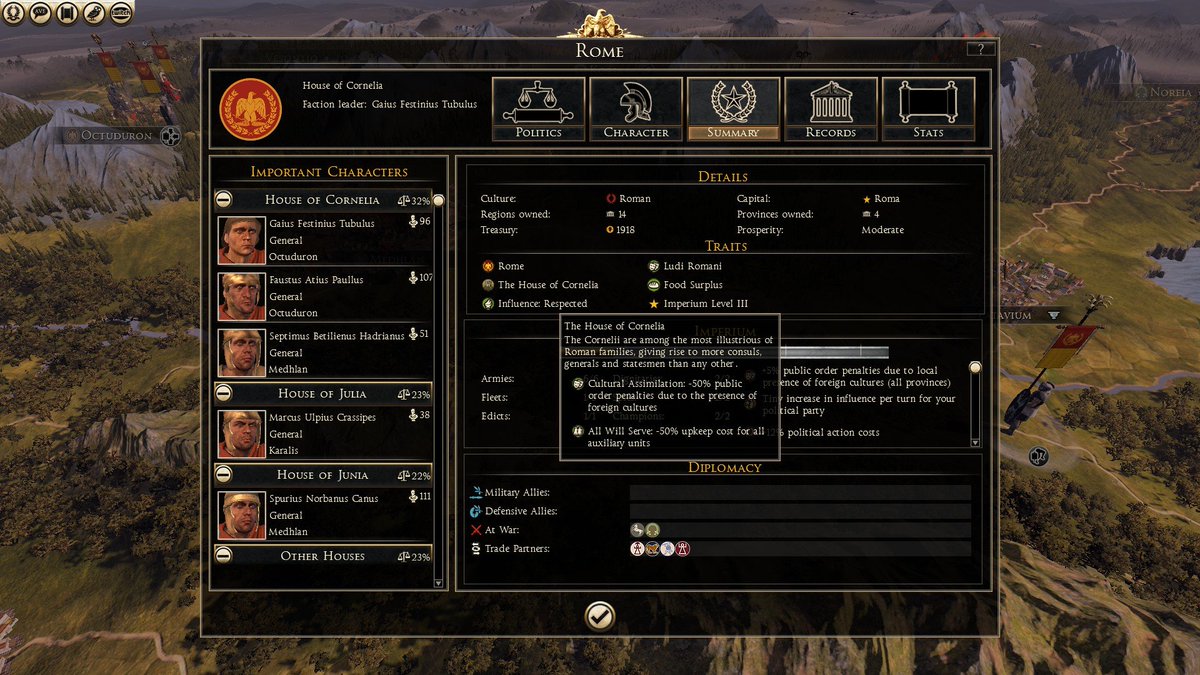
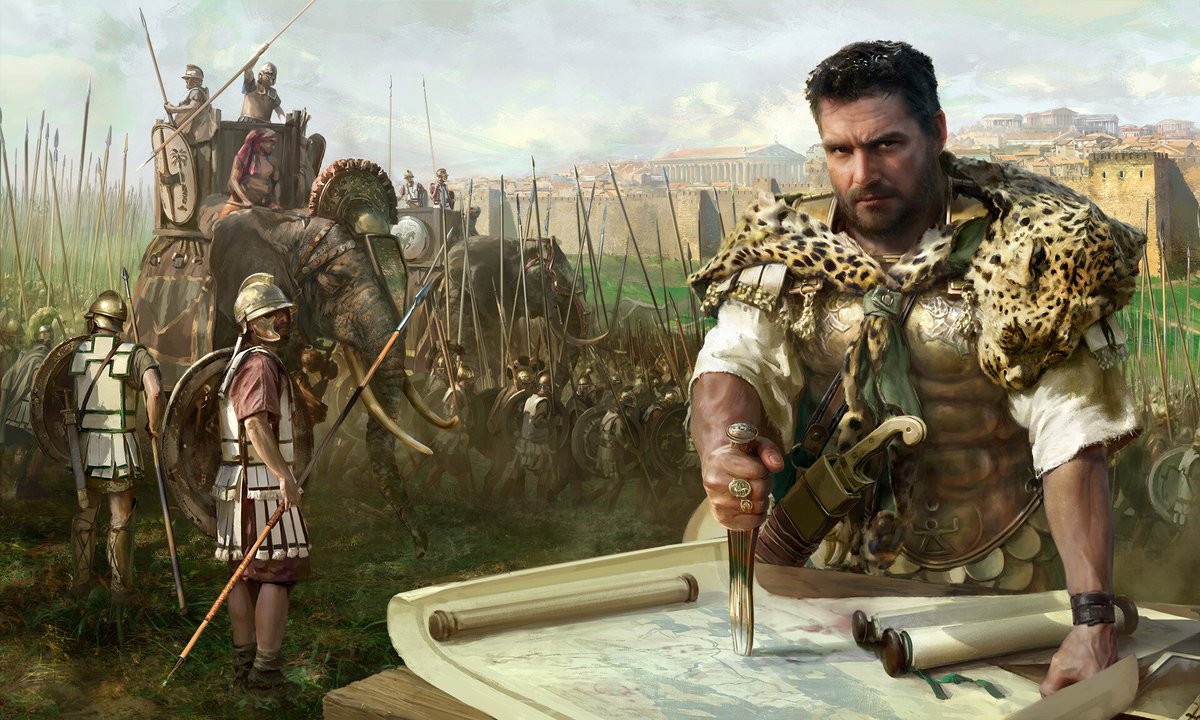
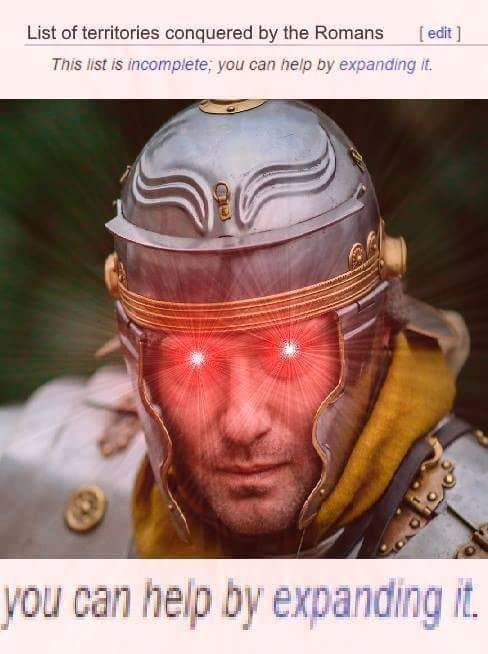
![were completely justified and any territory is gained reluctantly. It& #39;s reactive expansion. In effect, the empire was simply placed on the lap of the Romans. Cicero: Our ancestors waged war [...] for the sake of our allies, in spite of not having suffered injury themselves. were completely justified and any territory is gained reluctantly. It& #39;s reactive expansion. In effect, the empire was simply placed on the lap of the Romans. Cicero: Our ancestors waged war [...] for the sake of our allies, in spite of not having suffered injury themselves.](https://pbs.twimg.com/media/Eim1SxvXkAE8-e6.jpg)
